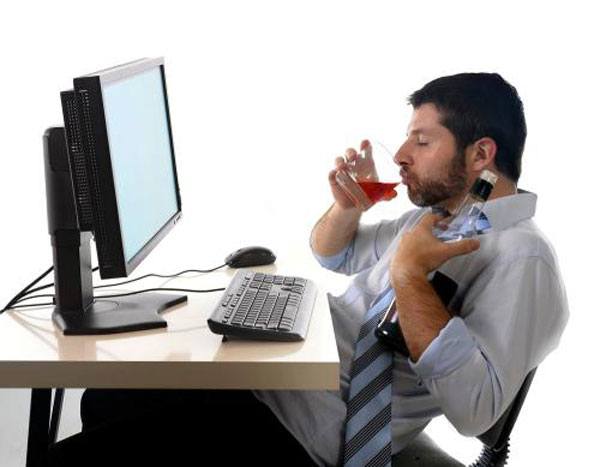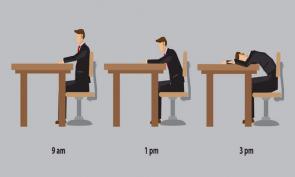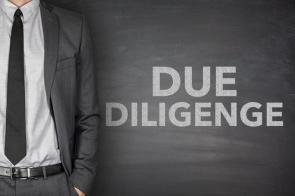
A: We humans have been partial to alcohol for something like 15,000 years. Even our primate cousins have been known to take a nip on occasion. Vervet monkeys living on St. Kitts, for instance, have learned how to get a natural buzz from fermented sugarcane. Presumably, their lifestyle is less stressful than that of the average overworked young lawyer, so it’s no surprise some attorneys have learned how to catch more than a buzz from elixirs stronger than rotting plant life.
In moderation, drinking is probably not harmful to most of us. This is a fact researchers have believed since the mid-1800s when British psychiatrist Sir Francis Anstie observed that male patients who kept within their limit of safe drinking (up to three drinks per day) stayed healthier, while those who exceeded it put themselves at higher risk for cirrhosis and other diseases. More recently, heart researchers have shown that up to a few drinks per day can actually protect middle-aged men from heart attacks and coronary heart disease. Alas, the risks of accidents, violence, some cancers, and hemorrhagic stroke escalate with alcohol consumption. When all ways of dying are factored in statistically, even men who stick to Anstie’s quota face a higher risk of premature demise than do abstainers.
All that said, a host of befuddling factors make your question fiendishly difficult to answer. Researchers at the National Institute of Alcohol Abuse and Alcoholism (NIAAA) have studied variations in so-called drinking trajectories. Some people start within the recommended limits and remain there for the rest of their lives. But up to 13 percent of Americans veer off course, winding up with some form of alcohol disorder. Many researchers have concluded that lawyers are especially susceptible to overindulgence. One study found that of a cross-section of practicing attorneys, 70 percent had experienced some kind of "clinically significant negative consequences" related to alcohol abuse. Researchers have tried hard to develop measures that distinguish between reasonable and problem drinking. One of the most accurate is the CAGE test, a simple four-question exam. "The CAGE test has been compared against longer and more sophisticated measures," says Ann Bradley, an NIAAA spokesperson, "and it has consistently proved an excellent means of screening for drinking problems." The questions:
- Have you ever felt you should cut down on your drinking?
- Have people annoyed you by criticizing your drinking?
- Have you ever felt bad or guilty about your drinking?
- Have you ever had an eye-opener to steady your nerves or quell a hangover upon awakening?
A single "yes" indicates a possible drinking problem. More than one indicates a likelihood. Even if you answer "no" to all four but drinking has caused grief at home, work, or with the law, talk to your doctor about curbing the habit. If you decide it makes sense to cut back, the NIAAA offers some practical tips at its Web site, http://niaaa.nih.gov, plus information on how to get serious help.
What to Do
1. Write down your reasons for cutting down. For example, "My colleagues make more sense when I’m not distracted by cockroaches crawling over my flesh."
2. Set a drinking goal and post where you’ll see it daily—a pop-up on your laptop screen, for instance, or your medicine cabinet.
3. Keep a drinking diary for a month, noting where and when you drink every drink. Compare your actual intake with your goal. You shouldn’t need a calculator to compute discrepancies.
4. Don’t keep alcohol at home.
5. Drink slowly, and never on an empty stomach. Swig something nonalcoholic between each glass of booze.
6. Skip a day or two a week. Try to work up to a week of abstinence. Note your physical and emotional states on the dry days. If they improve, use it as motivation to meet your goal. If you find yourself rationalizing, you have our permission to treat yourself as a hostile witness and cross-examine fiercely.
- See Top 14 Ways Attorneys Can Avoid Burnout from the Stress of Practicing Law for more information.
About Harrison Barnes
Harrison Barnes is a prominent figure in the legal placement industry, known for his expertise in attorney placements and his extensive knowledge of the legal profession.
With over 25 years of experience, he has established himself as a leading voice in the field and has helped thousands of lawyers and law students find their ideal career paths.
Barnes is a former federal law clerk and associate at Quinn Emanuel and a graduate of the University of Chicago College and the University of Virginia Law School. He was a Rhodes Scholar Finalist at the University of Chicago and a member of the University of Virginia Law Review. Early in his legal career, he enrolled in Stanford Business School but dropped out because he missed legal recruiting too much.
Barnes' approach to the legal industry is rooted in his commitment to helping lawyers achieve their full potential. He believes that the key to success in the legal profession is to be proactive, persistent, and disciplined in one's approach to work and life. He encourages lawyers to take ownership of their careers and to focus on developing their skills and expertise in a way that aligns with their passions and interests.
One of how Barnes provides support to lawyers is through his writing. On his blog, HarrisonBarnes.com, and BCGSearch.com, he regularly shares his insights and advice on a range of topics related to the legal profession. Through his writing, he aims to empower lawyers to control their careers and make informed decisions about their professional development.
One of Barnes's fundamental philosophies in his writing is the importance of networking. He believes that networking is a critical component of career success and that it is essential for lawyers to establish relationships with others in their field. He encourages lawyers to attend events, join organizations, and connect with others in the legal community to build their professional networks.
Another central theme in Barnes' writing is the importance of personal and professional development. He believes that lawyers should continuously strive to improve themselves and develop their skills to succeed in their careers. He encourages lawyers to pursue ongoing education and training actively, read widely, and seek new opportunities for growth and development.
In addition to his work in the legal industry, Barnes is also a fitness and lifestyle enthusiast. He sees fitness and wellness as integral to his personal and professional development and encourages others to adopt a similar mindset. He starts his day at 4:00 am and dedicates several daily hours to running, weightlifting, and pursuing spiritual disciplines.
Finally, Barnes is a strong advocate for community service and giving back. He volunteers for the University of Chicago, where he is the former area chair of Los Angeles for the University of Chicago Admissions Office. He also serves as the President of the Young Presidents Organization's Century City Los Angeles Chapter, where he works to support and connect young business leaders.
In conclusion, Harrison Barnes is a visionary legal industry leader committed to helping lawyers achieve their full potential. Through his work at BCG Attorney Search, writing, and community involvement, he empowers lawyers to take control of their careers, develop their skills continuously, and lead fulfilling and successful lives. His philosophy of being proactive, persistent, and disciplined, combined with his focus on personal and professional development, makes him a valuable resource for anyone looking to succeed in the legal profession.
About BCG Attorney Search
BCG Attorney Search matches attorneys and law firms with unparalleled expertise and drive, while achieving results. Known globally for its success in locating and placing attorneys in law firms of all sizes, BCG Attorney Search has placed thousands of attorneys in law firms in thousands of different law firms around the country. Unlike other legal placement firms, BCG Attorney Search brings massive resources of over 150 employees to its placement efforts locating positions and opportunities its competitors simply cannot. Every legal recruiter at BCG Attorney Search is a former successful attorney who attended a top law school, worked in top law firms and brought massive drive and commitment to their work. BCG Attorney Search legal recruiters take your legal career seriously and understand attorneys. For more information, please visit www.BCGSearch.com.
Harrison Barnes does a weekly free webinar with live Q&A for attorneys and law students each Wednesday at 10:00 am PST. You can attend anonymously and ask questions about your career, this article, or any other legal career-related topics. You can sign up for the weekly webinar here: Register on Zoom
Harrison also does a weekly free webinar with live Q&A for law firms, companies, and others who hire attorneys each Wednesday at 10:00 am PST. You can sign up for the weekly webinar here: Register on Zoom
You can browse a list of past webinars here: Webinar Replays
You can also listen to Harrison Barnes Podcasts here: Attorney Career Advice Podcasts
You can also read Harrison Barnes' articles and books here: Harrison's Perspectives
Harrison Barnes is the legal profession's mentor and may be the only person in your legal career who will tell you why you are not reaching your full potential and what you really need to do to grow as an attorney--regardless of how much it hurts. If you prefer truth to stagnation, growth to comfort, and actionable ideas instead of fluffy concepts, you and Harrison will get along just fine. If, however, you want to stay where you are, talk about your past successes, and feel comfortable, Harrison is not for you.
Truly great mentors are like parents, doctors, therapists, spiritual figures, and others because in order to help you they need to expose you to pain and expose your weaknesses. But suppose you act on the advice and pain created by a mentor. In that case, you will become better: a better attorney, better employees, a better boss, know where you are going, and appreciate where you have been--you will hopefully also become a happier and better person. As you learn from Harrison, he hopes he will become your mentor.
To read more career and life advice articles visit Harrison's personal blog.





